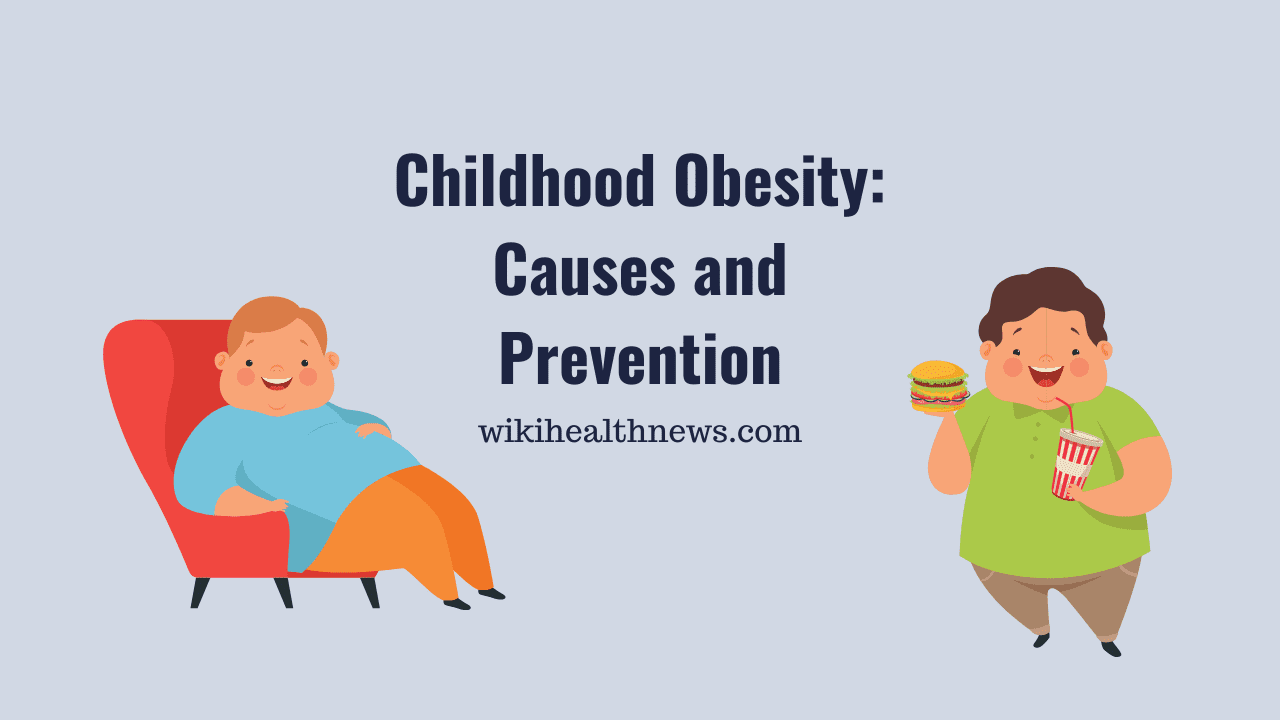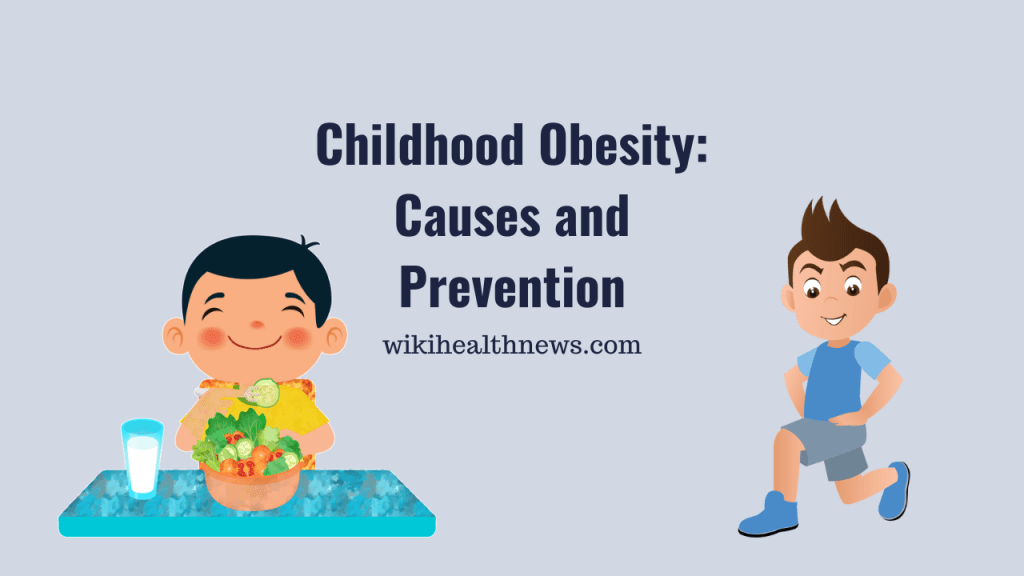Causes & Prevention of Childhood Obesity

Childhood obesity is a neglected but serious medical condition. It affects the future of children and adolescents. It’s particularly troubling because the extra weight often starts a child on the path to health problems such as diabetes, high blood pressure and high cholesterol. Obesity also has a psychological impact on the child .
Formulating eating habits from childhood is the best strategy to reduce obesity in children. You should follow a regular exercise routine for everybody in the family. Treating and preventing childhood obesity help protect the child’s health now and in future.
Symptoms:
Not all children carrying extra pounds are overweight. Some children have bigger than average body frames. And a child normally carries different amounts of body fats at the various stages of development. The body mass index (BMI) provides age wise ideal weight in relation to height. Hence, it is the accepted measure of overweight and obesity. The charts, the BMI and if necessary there are more tests to help to find out where the child is overweight or not.
What causes childhood obesity?
A lifestyle issue which includes very less activity and more calories intake are the main contributors to childhood obesity. Here the genetic and hormonal factors play a main role.
Risk factors
Diet:
Regularly eating high calorie foods in ignorance is the main cause of childhood weight gain. Snacking habits including fast foods, baked goods and vending machine snacks, can cause the child to gain weight. Candy and desserts also can cause weight gain, and more evidence points to sugary drinks, including fruits and sports drinks, as culprits in obesity in some people.
Lack of exercise:
Children who don’t exercise much will cause weight gain because they don’t burn as many calories. More time of period spent in sedentary activities such as watching television or playing video games also contributes to the problem.
Family factors:
If the child comes from a family of overweight people, they will be more likely to put on weight.
Psychological factors:
Personal, parental and family stress can increase a child’s risk factors for obesity. Some children fail to cope with stress and problems at school or home. Emotions such as stress, or boredom can lead to overeating.
Socioeconomic factors:
People in remote areas often store convenience foods. As a result, they might buy snacks and foods that will not spoil quickly, such as frozen meals, crackers and cookies.
Certain medications:
Some prescription drugs carry the risk of weight gain and obesity. Few of these are prednisone, lithium, amitriptyline, paroxentine (paxil), gabapentin (Neurontin, Gralise, Horizant) and propranolol (Inderal, Hemangeol).
Complications:
There are many complications like physical complications. Childhood obesity often causes complications in child physical, social and emotional well-being.
Complications are:
Type 2 diabetes:
This chronic obesity condition affects the way the child’s body uses sugar (glucose). More weight and sedentary lifestyle increase the risk of type 2 diabetes.
High cholesterol and high blood pressure:
A poor diet can also cause the child to develop one or both of these conditions. These factors can contribute to the formation of plaques in the arteries, which can cause arteries to narrow and harden, possibly leading to a heart attack or stroke later in life.
Joint pain:
Extra weight makes your knees and hips carry extra stress. Subsequently obese children can have pain and sometimes injuries in the hips, knees and back.
Breathing problems:
Asthma commonly happens in children who are overweight. These children are also more likely to develop obstructive sleep apnea, a potentially serious disorder in which a child can repeatedly stop and start during sleep. Where asthma is a chronic inflammation of the lungs airway. Obesity is the most common comorbidity with asthma here obesity is also a risk factor for more severe asthma in some but not all, people with obesity.

Nonalcoholic fatty liver disease (NAFLD):
This disease which usually causes no symptoms causes fatty deposits to build up in the liver. NAFLD can also cause scarring and liver damage.
Sleep disorder:
Kids and teen age people who are having obesity may also suffer from sleep disorders, such as excessive snoring and sleep apnea. Extra weight in the neck area can also block their airways.
Social and emotional complications:
Children who have more weight may experience teasing or bullying by their peers. This can result in a loss of self-esteem and increased risk of depression and anxiety.
Preventions:
To help prevent more weight gain in your child, you can:
Set a good example:
Children learn at home and follow the elders’ routine. Following a healthy lifestyle with proper diet and regular exercise can impact positively in the children’s mind. Everyone will have good things and no one will feel singled out.
Have healthy snacks available:
Options which may have air popped popcorn without butter, fruits with low fat yogurt, baby carrots with hummus, or whole grain cereal with low fat milk.
Offer new foods multiple times:
Children don’t accept new foods easily. But you should not get discouraged by the same. It usually takes more exposure to a food to gain acceptance.
Choose nonfood rewards:
Discourage rewarding food like candy or ice cream. Instead, buying books, pens or pencils for good behavior is a good idea.
Be sure the child gets enough sleep:
Little sleep may increase the risk of obesity. Sleep deprivation can cause the hormonal imbalances that lead to increased appetite.
Increase physical activity:
Increase the child level of physical activity to help them shed weight safely. Playing hopscotch outside for example may be more appealing than jogging around the block.
More family activities:
Find activities the entire family can enjoy together. This is not only a great way to bond, but it also helps the child learn everything from family. Hiking, swimming, or even playing tag can help the child get active and start on the path to a healthier weight.
Eat healthy…stay healthy…do physical activities….live long











